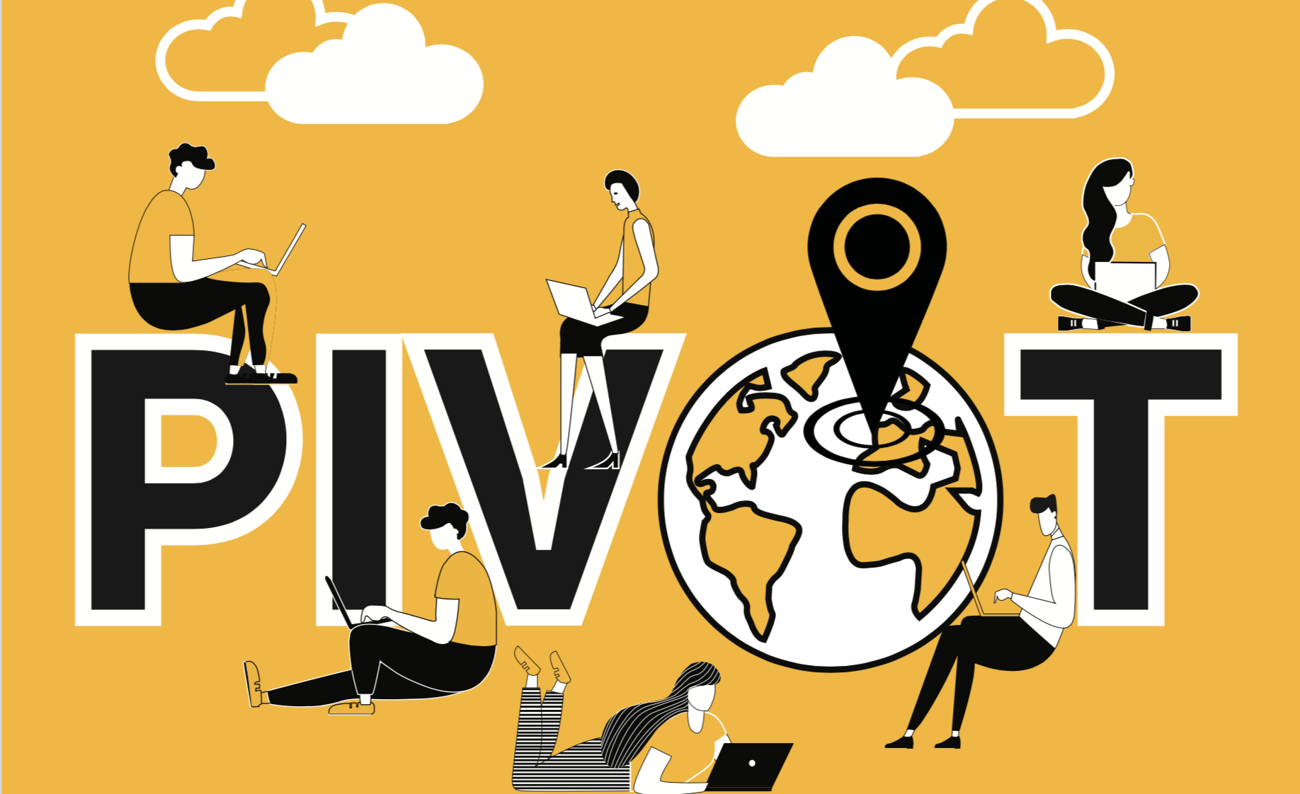
Vincent Heeringa in conversation with Melissa Clark-Reynolds
Given the current crisis, that sounds like an excellent idea. But what exactly is a pivot?
I would have guessed it meant to alter course, to strike out boldly in a new direction.
But what would I know? So I asked Melissa Clark-Reynolds, an entrepreneur, board director and old pal of mine, who spends her time advising companies on such things.
“It really means keeping one foot solid on the ground and then moving the other foot into a new place,” she said.
Makes sense. You can’t pivot when both feet are off the ground. That’s a hop. And you can’t stretch further than your legs will allow. That’s a jump.
“So many people think to pivot is to leave your existing business behind and jump off in a new direction. That’s a leap of faith, not a pivot.”
As we enter deeper into a Covid-19 recession, business leaders will come under increasing pressure to replace falling revenues with new ideas and innovations. The word pivot will pepper our conversations and board papers.
So it’s worth remembering Melissa’s advice. She mentioned it during a superb seminar by the Institute of Directors called ‘Innovating During Disruption’. She’s got another one coming up here. I highly recommend it.
What does a Covid Pivot look like? The lockdown period has created some early winners that I reckon can be classed into three categories (these are my reckons not hers):
The ‘Emergency Covid’ pivot
These are companies who turned around overnight to meet the demand for Covid-related products:
- Cactus Clothing and Little Yellow Bird switched their sewing machines to the job of making face masks
- Good George used their brewery, and Carbon Six their distillery, to make hand sanitiser
- Zuru, the toy maker, and Warehouse founder Sir Stephen Tindall, used their global supply chains to source PPE gear for front-line workers.
The ‘Force Majeure’ pivot
These are companies forced to find new ways to deliver existing products and services in a Level 4 environment:
- Habit Group, New Zealand’s largest health and recovery network, pivoted into a telemedicine company. Its 600-odd staff deliver gym, personal training and physiotherapy clinics over the Internet and via a dedicated Habit app. “In response to Alert Level 4, we leapfrogged at least three years of service development and delivery with the impact of Covid,” Habit’s Grant Bai told me last week
- Countdown responded to the massive demand in online shopping by building an 8800 square metre store in Penrose that looks like a regular supermarket, with a butchery, bakery, shelves of packaged grocery items, fresh fruit and vegetables – and a team of 200 personal shoppers to complete online orders.
The ‘My Time Has Come’ pivot
These are companies who have enjoyed a massive boost and had to scale quickly to meet demand:
- Zoom – the hitherto small-time competitor to Skype, Teams and Facetime has increased daily downloads 30-fold and has been the top free app for iPhones in the US since March 18. Zoom says daily users spiked to 200 million in March, up from 10 million last December
- Kiwi online ordering apps Mobi2Go and The Regular both experienced unprecedented traffic on the day we switched to Level 3
- I don’t know it for sure but people tell me Imagr, the wireless shopping trolley company, has gone nuts following its successful fundraising round of $14 million and imminent roll out in Japan.
All of these companies already had one foot on the ground – they had loyal customers, stable systems and talented management that allowed them to pivot to new delivery systems or to rapidly expand.
So that’s all very well, I hear you say, but that’s the past (‘thank you Captain Hindsight!’). What happens next? As we move into a post-lockdown world, what kind of pivot should you consider? How can you anticipate where the market will be? Melissa says that when it comes to managing disruptive change it helps to think about some basic principles:
- This will happen again. “We shouldn’t be surprised by crises. In my time in business I’ve experienced the 1997 Asian financial crisis, the GFC, the Christchurch earthquake, the Kaikoura earthquake, M. bovis and now this. I’ve also discovered that pandemics typically occur every three-and-a-half years. So we need to imagine a world where lockdown of some sort is a regular occurrence.
“We did this exercise with Radio New Zealand. Being based in Wellington we realised we were vulnerable to earthquakes. So we trialled operating from just the Auckland office. Then from Christchurch. Then from no office at all. When the event did actually occur, we were able to broadcast from everyone’s homes without much interruption.
“You need to imagine what happens to your IT, to customer-service, to supply chains to all aspects of your business if the proverbial hits the fan – because eventually it will.”
- Crises reinforce current trends. As with the GFC, this crisis has accelerated the shift to e-commerce and digital service delivery. What other mega-trends are happening that Covid-19 could reinforce? How about the shift towards subscription services? Look at what subscription has done to TV, software and now car ownership. “Imagine if your company had to shift to a monthly subscription model. How would you respond? What would you have to change?”
- Existing customers are key: Pivoting is not about finding new customers – that requires a different kind of innovation. Pivoting is about making more from your already loyal customer base. It answers the question: ‘they already trust us for this, can we now extend that trust to give them that?’ A great example is Lewis Road Creamery’s ability to move down the dairy isle from butter to milk, to chocolate milk, to cream and now ice cream. At this time of crisis, Melissa’s advice is to get close to your customers and really make yourself useful. “Remember, the best ROI is to get more from your highest-margin customers.”
That last bit sounds so sensible I’m almost disappointed. I was hoping to hear that pivoting provides permission for us to go crazy on new ideas. Maybe, but then who wants an unpredictable nutjob in charge when you’re facing a calamity? Unless of course you’re selling bleach.
Good luck with the pivot!
Vincent Heeringa, the Content Director at Anthem.





